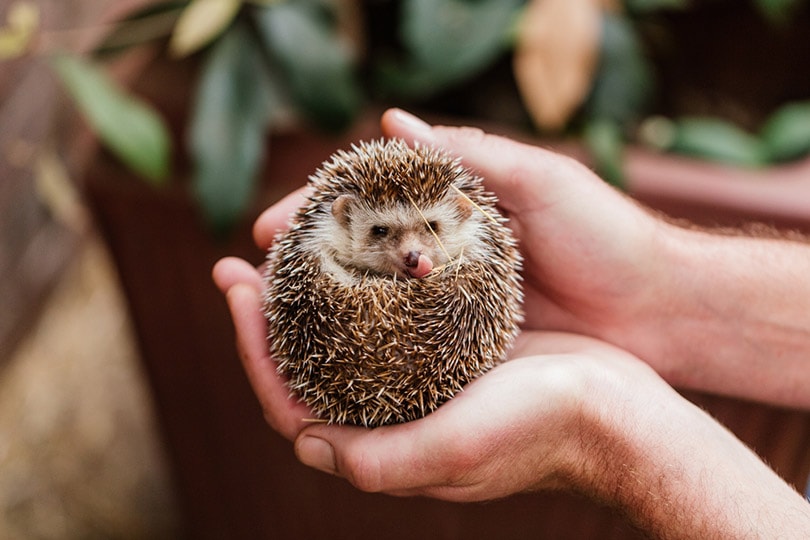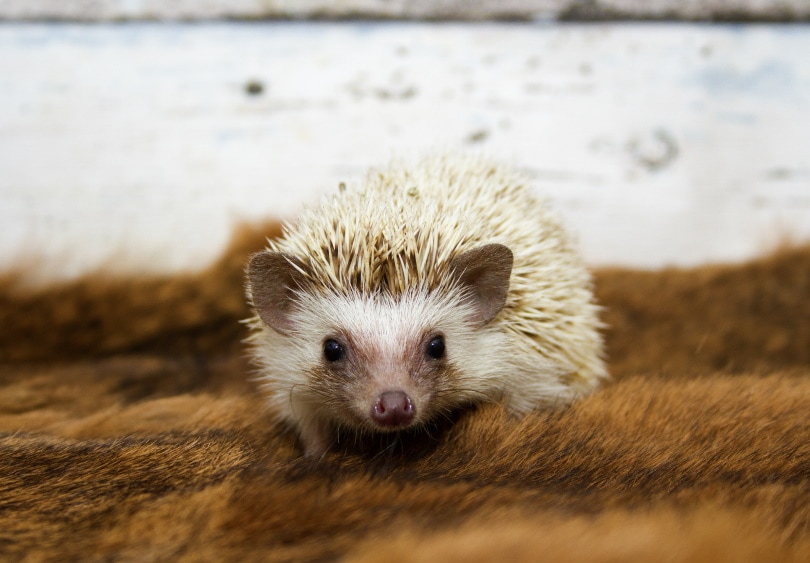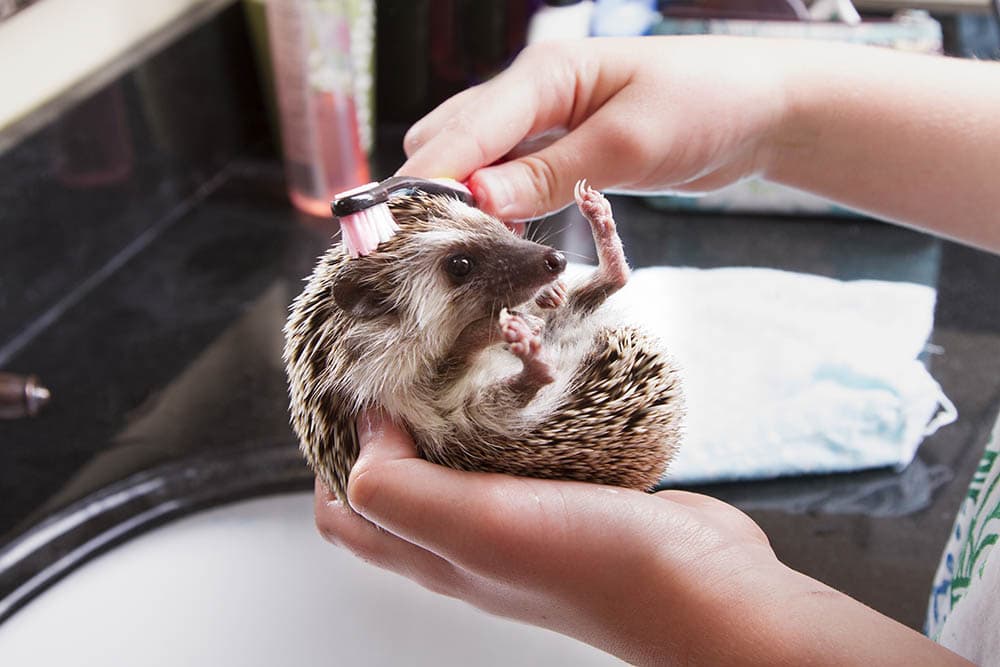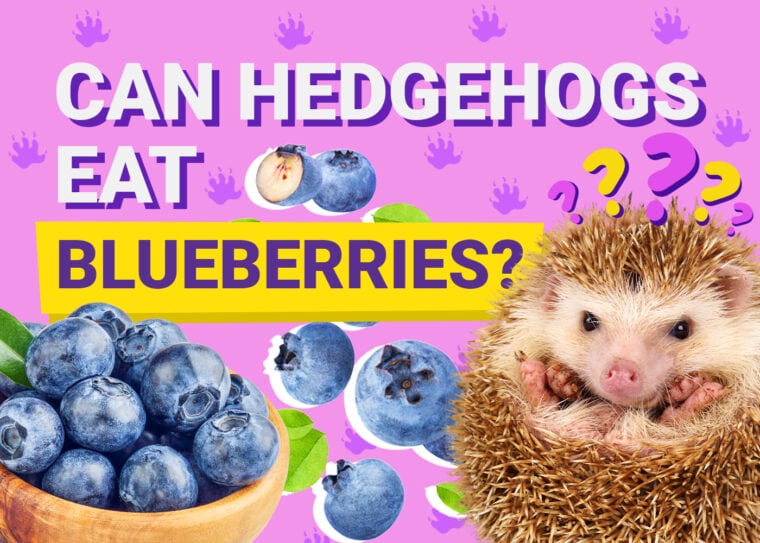
Whether in the wild or when kept as pets, hedgehogs are omnivorous, which means that they can eat almost anything. As part of a good, balanced diet, blueberries are not only safe for your hedgehog, but they are likely to be a favorite treat, and hedgehogs can enjoy the same antioxidant benefits that people and other animals do from this superfruit.
However, they are high in sugar, which means that they must be fed in moderation, or you risk obesity and weight-related illnesses.
Read on for more information on feeding blueberries, as well as some other fruits that are safe.
Are Blueberries Good for Hedgehogs?
Blueberries are considered non-toxic, which means that they do not directly cause illness or fatalities in hedgehogs. As such, if your pet hog has stolen a blueberry from your plate, it should be absolutely fine.
Regularly added to pet food and eaten by humans for their antioxidant properties, blueberries are considered a superfruit. Antioxidants fight the signs of aging by getting rid of free radicals. They are also known to reduce the chances of developing certain cancers and heart conditions. And, while they are higher in sugar than insects, they are lower than most other fruits, which makes them a good choice as an occasional treat.

Wild Berries
Not all blueberries are equal. Wild berries are those that are found on blueberry bushes in the wild. They are free from pesticides and other chemicals used to treat food crops, but they can harbour bacteria and insects that are not good for your spikey pet. Therefore, it is best to avoid feeding wild blueberries.
Organic Berries
Organic berries are your best option when buying from the shop, but you need to ensure that they come from a reputable source. Choose a store with a good reputation for selling organic stock. You should remove the skin and wash the berries, even if they are organic. While this won’t get rid of any chemicals that might have soaked into the fruit itself, it will go some way to help.
Dried Berries
As well as wild berries, you should avoid feeding dried berries. These rely on preservatives to help prevent them from rotting and to aid in the drying process. They also have a much higher sugar-to-weight ratio, meaning you will have to feed a lot less volume, or your hedgehog could put on too much weight.
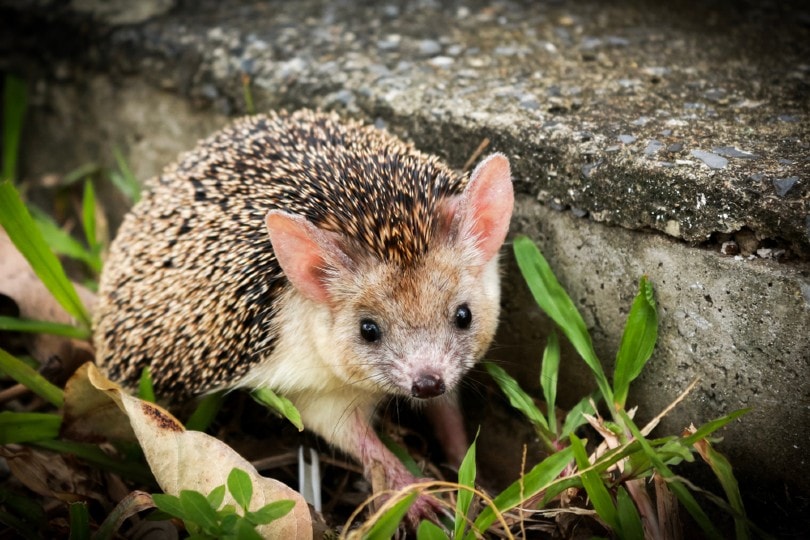
How Many Blueberries Can I Give My Hedgehog?
Feed berries, including blueberries, three times a week, and only offer the equivalent of a teaspoon of fruit per day. This means feeding from a half to a whole blueberry. It might not seem much, but it is to a small stomach like your prickly pet.
The 5 Other Fruit Hedgehogs Can Eat
1. Apples
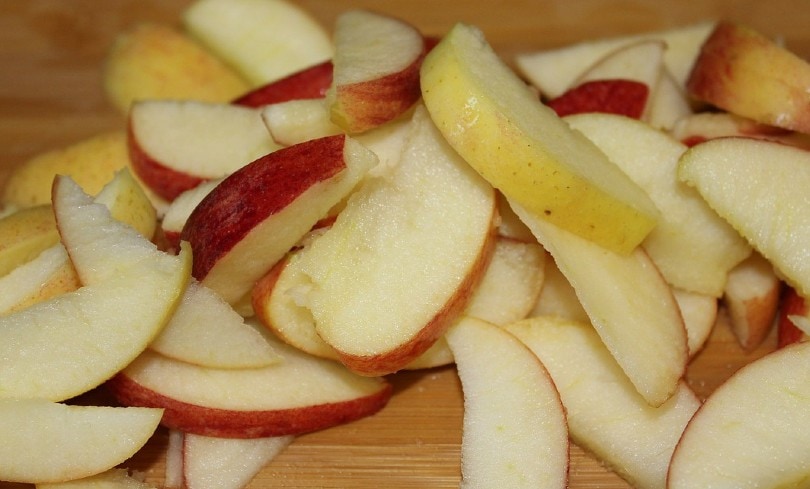
Apples are sweet, meaning they will be a tempting little treat. It also means that they are another fruit that should be fed in small amounts. Remove the skin because it can be difficult to chew and swallow, and cut or mush the apple to make it easier to eat.
2. Bananas

Bananas are a good source of potassium, and they are easy for a hedgehog to digest. Remove the peel and avoid feeding overripe bananas, which are naturally much higher in sugar and have far more calories than yellow bananas.
3. Pears

Pears are similar to apples except that they have a much more fibrous texture and are higher in fiber. The skin must be removed, and you must ensure the fruit is cut into small pieces. Feeding a piece of fruit that is too large means your little one could wolf it down without chewing, causing a choking hazard and potentially proving fatal. Don’t feed the pips, either, because these contain cyanide (safe for humans in that quantity, but not necessarily for a body as small as a hedgie).
4. Strawberries
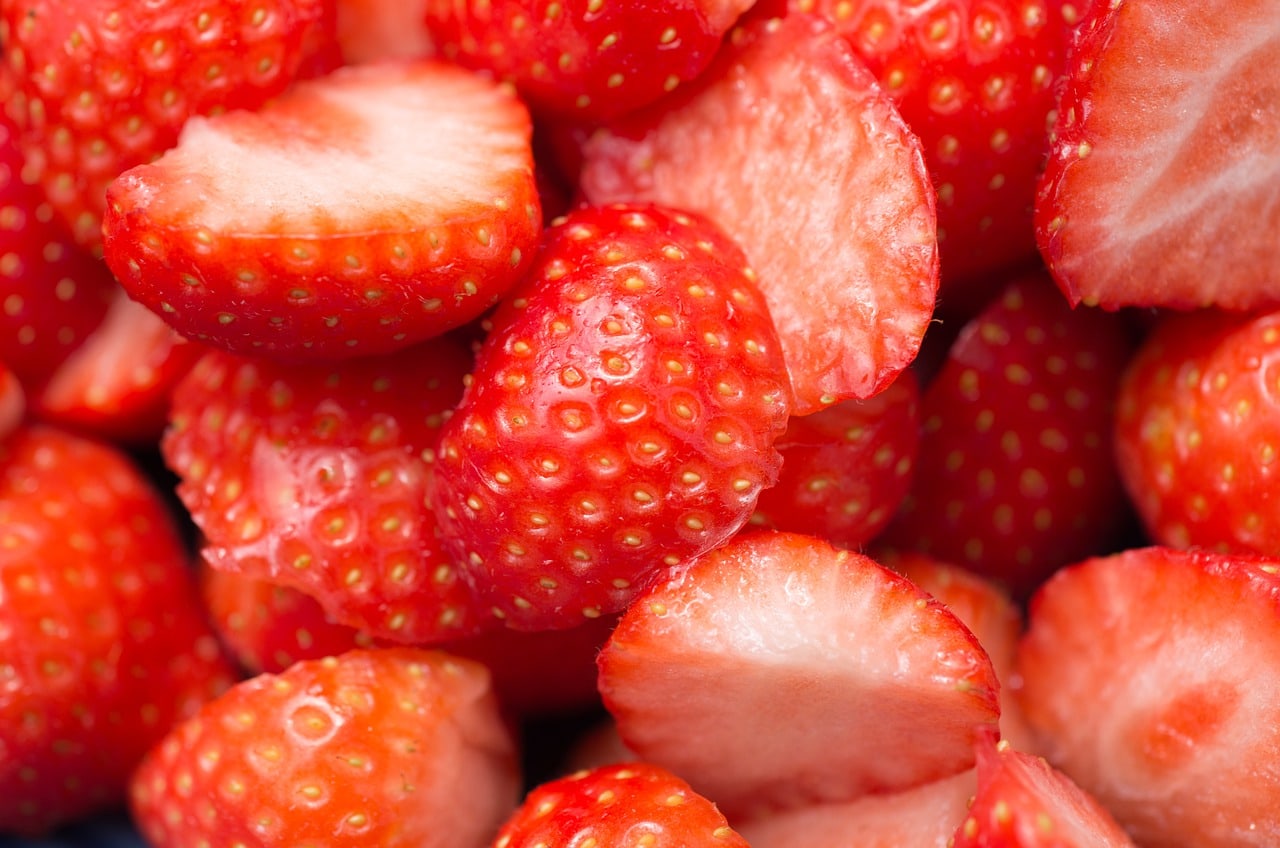
Strawberries are sweet and juicy. They are naturally appealing but have a surprisingly low amount of sugar in their berry bodies. Strawberries are rich in vitamins and antioxidants, one of the better fruits you can feed. However, you will have to cut them up, try to cut off the skin, and avoid feeding them if they are mushy, moldy, or have gone dark.
5. Kiwi

Kiwi is a fibrous fruit; removing the skin first is considered safe to give hedgehogs. Feed a little, first, to ensure that they like the flavor and, as always, feed fruit in moderation.
The 3 Fruits Hedgehogs Cannot Eat
Hedgehogs can benefit from having some fruit in their diet, although they are high in natural sugars, so they should only be fed sparingly and occasionally. However, not all fruits are safe.
1. Grapes
Grapes should not be fed to hedgehogs because they are toxic. Even a relatively small amount can lead to kidney or liver failure.
2. Oranges
Oranges and other citrus fruits are very acidic. This acid can cause gastrointestinal upset, cause an overproduction of stomach acid and bile, and can lead to vomiting and diarrhea. At best, it will lead to stomach pain. At worst, it could become very serious.
3. Raisins
Raisins are dried grapes. The drying process does not reduce or eliminate the toxicity of the fruit, and raisins are considered just as dangerous for hedgehogs as undried grapes, potentially even more so because of the higher concentration of sugars and toxic ingredients. You should avoid feeding these and ensure your hedgehog doesn’t have the opportunity to steal them from you.
Can Hedgehogs Eat Blueberries?
Hedgehogs are omnivores. They primarily eat meat, including small insects, some frogs, and even fish. Although it should only be fed in moderation because of the high sugar levels and calories, your hedgehog could enjoy an occasional treat of sweet and juicy fruits.
Blueberries are not only non-toxic, but they are sweet, filled with antioxidants, and tend to be a popular treat. Remove the skin, cut the blueberry up, and feed around half a blueberry every other day. Other fruits you can offer include apples, pears, and bananas, but you should avoid feeding grapes and raisins, while the highly acidic content of citrus fruits means that they could cause stomach upsets and should also be avoided.
See also:



